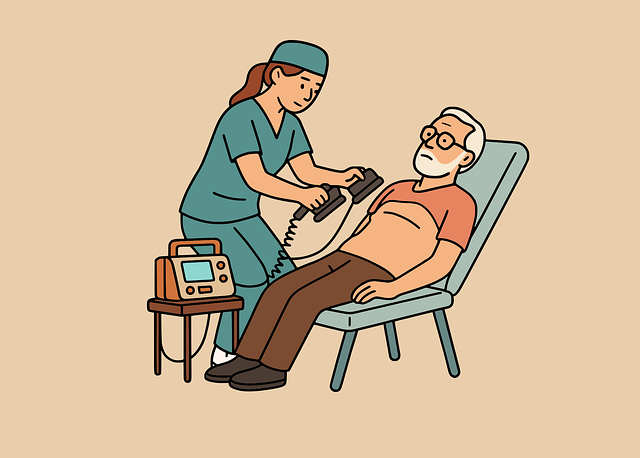Depression is a serious mental health condition with diverse symptoms, including persistent sadness, hopelessness, changes in appetite, sleep disturbances, fatigue, concentration issues, and suicidal thoughts. Mental health professionals, like depression therapists, use the DSM-5 for accurate diagnoses and tailor treatments, which may include therapy (e.g., CBT, IPT, MBCT), medication, or both. These therapists create safe spaces to help individuals understand their depression, manage symptoms through coping strategies, and improve overall well-being. While therapy alone can be effective, antidepressant medication is sometimes prescribed alongside therapy for comprehensive symptom relief. Connecting with depression therapists and leveraging community resources plays a crucial role in recovery.
Depression is a common yet serious mental health condition affecting millions worldwide. If you’re struggling with persistent feelings of sadness, hopelessness, or loss of interest, seeking professional help from a depression therapist could be life-changing. This comprehensive guide explores various aspects of managing depression, including symptoms, therapy types, and coping strategies. Discover how therapists play a pivotal role in your journey to recovery and learn about the available resources for sustained well-being.
Understanding Depression: Symptoms and Diagnosis

Depression is a common yet serious mental health condition that affects millions worldwide. It’s more than just feeling sad or blue; it’s a persistent state of low mood and loss of interest in activities once enjoyed, impacting daily functioning. Understanding depression involves recognizing its various symptoms, which can include feelings of sadness, hopelessness, changes in appetite and sleep patterns, fatigue, difficulty concentrating, and even recurrent thoughts of death or suicide.
Diagnosing depression typically involves a comprehensive evaluation by qualified mental health professionals, such as depression therapists. They employ tools like the Diagnostic and Statistical Manual of Mental Disorders (DSM-5) to assess symptoms, duration, and severity. This process ensures an accurate diagnosis and tailored treatment plan, which may include therapy, medication, or a combination of both, addressing the unique needs of each individual.
The Role of Depression Therapists in Treatment

Depression therapists play a pivotal role in helping individuals navigate and overcome their battle with depression. These professionals are equipped with advanced training and expertise in mental health, specifically tailored to address depressive disorders. Through various therapeutic techniques, they guide patients towards understanding and managing their symptoms effectively.
The process often involves cognitive-behavioral therapy (CBT), where therapists help clients identify and challenge negative thought patterns, replacing them with healthier alternatives. Other approaches may include interpersonal therapy, focusing on improving relationships and social skills, or psychodynamic therapy, delving into past experiences to uncover underlying issues. Depression therapists create a safe, non-judgmental space, fostering trust and encouraging open communication, which is essential for successful treatment.
Types of Therapy for Depression: An Overview

When seeking professional help for depression, individuals have several therapeutic options to explore. One common and effective approach is cognitive-behavioral therapy (CBT), which focuses on identifying and changing negative thought patterns and behaviors contributing to depression. CBT helps patients develop coping strategies, improve mood regulation, and enhance overall well-being.
Another popular therapy type is interpersonal therapy (IPT), tailored to address relationship issues and social factors that may trigger or exacerbate depression. IPT assists individuals in improving communication skills, resolving conflicts, and building a supportive network, which can significantly alleviate depressive symptoms. Additionally, certain mental health professionals employ mindfulness-based therapies, such as Mindfulness-Based Cognitive Therapy (MBCT), combining cognitive techniques with mindfulness exercises to prevent depressive relapse.
Building a Therapeutic Alliance with Your Therapist

Building a strong therapeutic alliance is a key aspect of effective treatment for depression. This means fostering a deep and meaningful relationship with your therapist, where both parties are committed to working together towards recovery. A good therapist will create a safe, non-judgmental space, encouraging you to openly discuss your feelings and experiences without fear of criticism. They should actively listen, validate your emotions, and offer guidance and support throughout the process.
The alliance is built on trust, mutual respect, and understanding. It involves setting clear goals, establishing open communication, and consistently applying the strategies and techniques learned during therapy sessions. This collaboration ensures that the treatment plan is tailored to your specific needs and that you feel empowered to take charge of your mental health journey. A strong therapeutic bond can significantly enhance the effectiveness of depression therapists in helping individuals overcome their struggles.
Coping Strategies: Tools for Daily Life

Depression can make even the simplest daily tasks feel overwhelming. Fortunately, depression therapists offer a range of coping strategies tailored to individual needs. These tools are designed to help manage symptoms and improve overall well-being. Cognitive Behavioral Therapy (CBT), for example, focuses on identifying and changing negative thought patterns, while Mindfulness-Based Therapies promote present-moment awareness and acceptance.
Incorporating healthy habits like regular exercise, adequate sleep, and balanced nutrition can significantly support mental health. Additionally, engaging in activities that bring joy, practicing relaxation techniques, and connecting with supportive communities are all part of a holistic approach to managing depression. Depression therapists guide individuals through these strategies, empowering them to take control of their mental health and lead more fulfilling lives.
When Medication is Necessary: Antidepressants Explained

For some individuals living with depression, therapy alone may not be enough to manage symptoms effectively. In such cases, healthcare professionals might recommend antidepressant medication as part of a comprehensive treatment plan involving both therapeutic support from depression therapists and pharmaceutical intervention. Antidepressants work by altering the balance of certain chemicals in the brain that affect mood and emotions, aiming to alleviate symptoms like persistent sadness, loss of interest in activities once enjoyed, changes in appetite or sleep patterns, fatigue, feelings of worthlessness, and difficulty concentrating.
There are several types of antidepressants available, each working in slightly different ways. Selective Serotonin Reuptake Inhibitors (SSRIs) are a common type often prescribed first due to their generally mild side effects and effectiveness. Other classes include Serotonin-Norepinephrine Reuptake Inhibitors (SNRIs), Tricyclic Antidepressants (TCAs), Monoamine Oxidase Inhibitors (MAOIs), and others, each with its own set of benefits and potential side effects. The choice of medication depends on individual needs, as well as the severity and specific symptoms of depression. It’s crucial to consult with a healthcare provider who can determine the best course of action, monitor progress, and adjust treatment plans as needed.
Resources and Support for Continuous Well-being

When seeking professional help for depression, one of the most crucial steps is connecting with qualified depression therapists. These specialists are equipped to provide a range of evidence-based therapies tailored to individual needs. Whether it’s cognitive-behavioral therapy (CBT), mindfulness-based interventions, or other effective approaches, therapists offer a safe and supportive space for clients to explore underlying issues, develop coping strategies, and foster resilience.
Support extends beyond the therapeutic relationship. Many communities offer various resources, including support groups, hotlines, and online forums, where individuals can connect with peers facing similar challenges. These networks provide ongoing assistance, encouragement, and a sense of belonging, contributing to long-term well-being and recovery.
